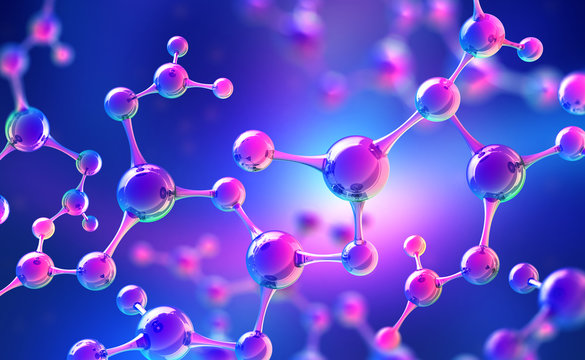Biochemistry is the study of the chemical processes that occur in living organisms. It is a multidisciplinary field that combines knowledge from biology, chemistry, and other related fields to understand the structure, function, and interactions of biomolecules. Pursuing a career in biochemistry can offer a wide range of opportunities for research and development in various fields. Biochemists work in a variety of settings, including research labs, pharmaceutical companies, and academic institutions. In India, the field of biochemistry has gained immense popularity in recent years, and many students are choosing it as a career option.

Work description
The work includes carrying out the following roles:
- Conducting experiments to analyze and understand biochemical processes
- Using specialized equipment and techniques to isolate and purify biological molecules
- Developing and testing new drugs and therapies
- Analyzing and interpreting data
- Writing research papers and presenting findings at conferences
- Collaborating with other researchers, clinicians, and industry professionals
High Demand
High demand for biochemists in various industries, including pharmaceuticals, biotech, and academia.
Lucrative salaries
Opportunity to contribute to scientific breakthroughs and advancements in medicine.
Opportunities for innovation
It is a growing field with increasing demand for biochemists in industries such as pharmaceuticals, biotechnology, and food science.
Versatility
Biochemists can make significant contributions to society by developing new drugs, vaccines, and diagnostic tests for diseases.
Flexibility
The interdisciplinary nature of biochemistry allows for collaboration with researchers from different fields, expanding the scope of research.
Job satisfaction
Biochemistry offers a wide range of career paths, including academia, industry, government, and healthcare.
High stress
The field of biochemistry can be highly competitive, with limited job opportunities in some areas of research.
Long hours
Research can be time-consuming and require long hours of work in a laboratory.
Competitive field
Working in biochemistry may require advanced degrees and specialized training, which can be expensive.
Constant learning
Funding for research can be limited, leading to financial uncertainty for researchers.
Isolation
Limited job prospects in some geographic areas
Eye strain and other physical health issues
High-stress levels associated with working in a research environment
To become a biochemist in India, one typically needs to complete a bachelor’s degree in biochemistry or a related field, such as biology or chemistry. Then pursue a master’s degree in biochemistry or a related field, which can help advance career opportunities. Gain experience through internships or research assistantships during education can also open new doors. Pursue a Ph.D. in biochemistry or a related field to gain further specialization and expertise. Work as a postdoctoral researcher to gain experience and make contributions to the field. And lastly, apply for jobs in academia, industry, government, or healthcare.
The investment needed to pursue biochemistry as a career depends upon the qualification. Bachelor’s degree in biochemistry can cost around 1-2 lakhs. Master’s degree in biochemistry can cost around 2-3 lakhs. PhD in biochemistry can cost around 5-10 lakhs. Hence, the investment can range from 2 lakhs to 10 lakhs as per the student’s academic qualification. Additionally, other expenses other than tuition fee should also be included in consideration.
[wpcharts type=”horizontalbarchart” bgcolor=”red:gray:yellow,blue:gray:yellow,random:gray:yellow,purple:gray:yellow” min=”0″ legend=”true” titles=”2 year , 5 year” values=”3,7,5,12″]
The earning potential of a biochemist in India can vary depending on their experience, education, and employer. According to PayScale, the average salary for a biochemist in India is around INR 364,000 per year, with entry-level biochemists earning around INR 240,000 to 500,000 per year and experienced professionals earning up to INR 1,200,000 per year. Senior biochemists and research scientists can earn upwards of 10 lakhs per year
[wpcharts type=”horizontalbarchart” bgcolor=”red:gray:yellow,blue:gray:yellow,random:gray:yellow,purple:gray:yellow” min=”0″ legend=”false” titles=”Entry-Level, Mid-Career, Senior-Level ” values=”5,15,25,35,45,55″]
Strong foundation in chemistry and biology
Analytical and critical thinking skills
Attention to detail
Good communication and teamwork skills
Excellent problem-solving skills.
Ability to work independently and in a team.
Perseverance and patience.
Lack of interest in science or research
Inability to work under pressure
Poor organizational skills
Limited attention span
Dislike for laboratory work.
Poor time management skills.
Lack of attention to detail.
Work-life balance
The work-life balance of a biochemist can vary depending on the specific job and work environment. However, in general, biochemists may spend long hours in the lab conducting experiments, analyzing data, and writing research papers. This can be demanding and require a lot of focus and attention to detail. However, many companies and academic institutions offer flexible schedules and opportunities for work-life balance, such as the ability to work from home or flexible hours. Additionally, biochemists may have the opportunity to work on collaborative projects with other researchers, which can provide a sense of community and support. Ultimately, achieving a healthy work-life balance as a biochemist requires good time management skills, a supportive work environment, and a willingness to prioritize self-care and relaxation outside of work.

Biochemists have the potential to make significant contributions to scientific research and advancements in medicine.
Their work can have a positive impact on society and the health and well-being of individuals.
Biochemists play a critical role in the development of new drugs and therapies.
Their work can help to identify and treat diseases at the molecular level.
Biochemists also contribute to the development of sustainable technologies and solutions for global challenges.
They have the opportunity to work in a variety of settings, including research labs, pharmaceutical companies, and academic institutions.
Structural Biochemistry
study of the structure and function of biological molecules, such as proteins, nucleic acids, and lipids.
Enzymology
study of enzymes, including their structure, function, and mechanisms of action.
Metabolic Biochemistry
study of the chemical processes that occur within living organisms, including energy production, biosynthesis, and degradation of biological molecules.
Molecular Biology
study of the molecular basis of biological activity, including the structure and function of DNA, RNA, and proteins.
Immunology
study of the immune system, including its structure, function, and response to infectious and non-infectious agents.
Conclusion:
In conclusion, a career in biochemistry offers many opportunities for growth, innovation, and contribution to society. While the field can be demanding and competitive, with the right skills and dedication, individuals can achieve success and make a positive impact in the world of science and medicine.




